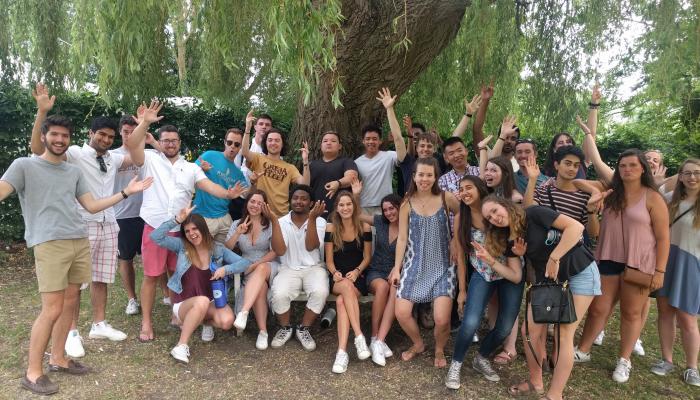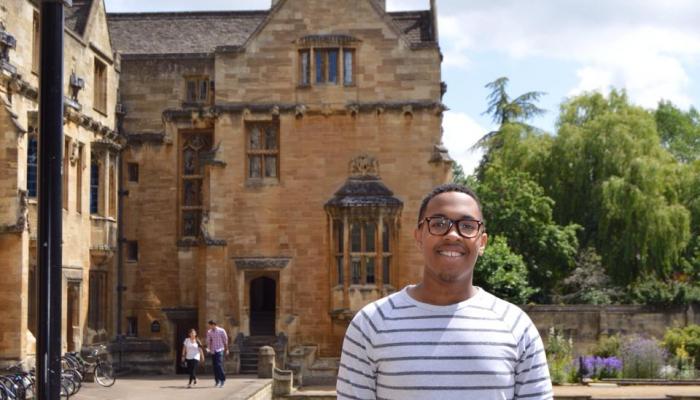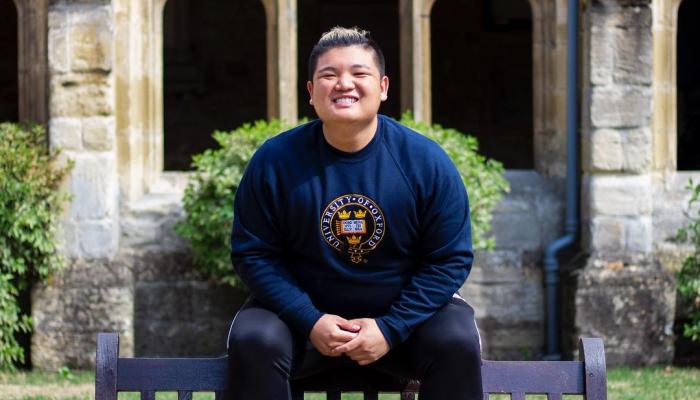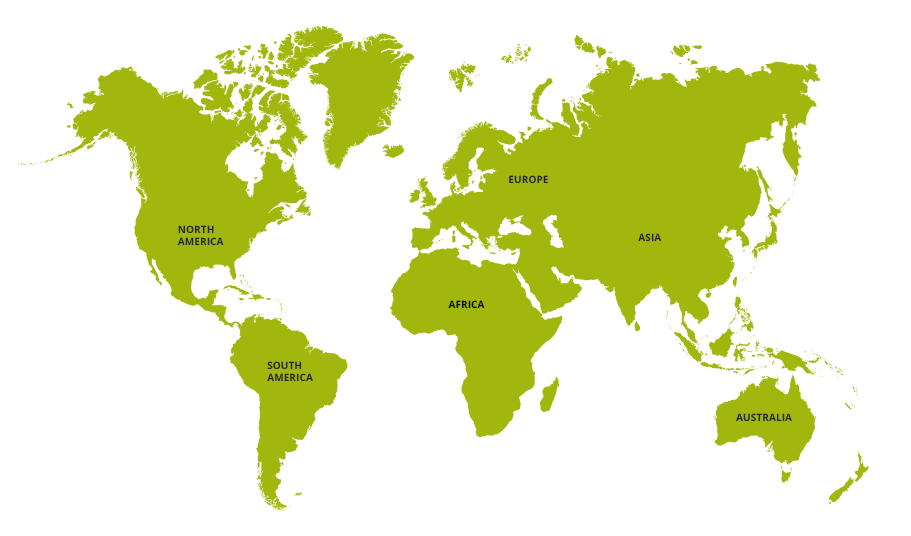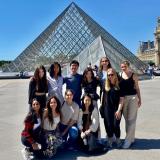Duke in Oxford
6-week summer program
Experience the University of Oxford Tutorial Method
Apply NowDuke in Oxford provides students the opportunity to study at England's oldest and one of its most venerable universities. Students take a single class (for double-credit, due to the rigor) for six weeks. Each class is taught by Oxford faculty, employing the tutorial method, the unique style of instruction that is the central feature of an Oxford education. Throughout the program, students have access to the Bodleian Libraries, a collection of 27 distinguished libraries in which to compose the one paper required per week. The program is organized by Oxford's Department of Continuing Education in conjunction with Trinity College of Arts and Sciences of Duke University.
Six weekly guest lectures are also given by the academic staff of the University of Oxford, or by outside experts, solely for Duke in Oxford students, at New College. Students attend the lecture and then meet each week’s speaker at a reception before that week’s High Table Dinner. For each weekly dinner, a small group of students is invited to join the school staff, the guest lecturer, and other guests at the High Table.
In addition, a handful of field trips and excursions are planned for the group every year.
PROGRAM FAST FACTS
Location: Oxford, United Kingdom
Term: Summer II
Dates: June 28 - August 9, 2025 TENTATIVE
Application Deadline: February 1
Academic Theme(s): Tutorial Method; English, Political Science, History, Philosophy, Ethics (themes can vary from year to year)
Credit Type: Duke Credit
Eligibility: Students must have a cumulative GPA of 3.0. There are no prerequisites. Non-Duke students are welcome to apply.
Housing: Residence Hall (at New College)
Primary Contact: Christine Lee
ACADEMICS
Students enroll in one class and work under the direction of a tutor, who is a faculty member at Oxford University. Participants receive Duke credit and letter grades for these double-credit upper-level classes. Neither the audit, nor the pass/fail option is permitted. Classes consist of a weekly seminar component and - most importantly- a weekly tutorial session.
This challenging course of study introduces students first-hand to the style of education that Oxford has made famous. The distinctiveness of the Oxford tutorial system lies in the small intimate meetings of students with their tutors. While students attend seminar meetings, the central part of the student's work lies in meetings with the tutor. Each course requires one substantial paper per week. The tutors are instrumental in introducing students to this unique learning approach.
In addition to enrolling in one of the four classes, students are required to attend six (6) lectures given by noted British scholars in the Exeter College summer lecture series. These lectures cover topics in the Humanities, Social Science, and History.
- COURSES
COURSES
Upon acceptance into the program, students will be asked to rank their top three choices among the four classes offered. We will do our best to put admitted students into their first or second choice class, but this is not guaranteed – students must remain flexible and open to any class taught on Duke in Oxford.
Below are the classes that were offered in 2024. These can and often do change from year to year. There is no guarantee that a class listed below will be offered in 2025.
POLSCI 282A/HISTORY 399A
Political System of Modern Britain
(CCI, SS) 2.0 credits
This course will give students an introduction to contemporary British history. It will examine the problems of post-war renewal, economic decline and revival, party political competition, and political economy. Britain's relationship with the world changed as its Empire declined in the context of the Cold War, and as the referendums on British membership of the EEC/EC/EU in 1975 and 2016 showed, Empire has not been replaced with a settled European identity. Margaret Thatcher, Tony Blair and others have sought to give direction to Britain as long-standing questions of national identity, class relationships and military and diplomatic power have remained problematic.
PHIL 384AS/POLSCI 377AS
Classical and Contemporary Political Philosophy
(SS, EI) 2.0 credits
This course offers an introduction to the history of Western political thought, exploring the theories of the state from Hobbes to Marx. Built upon constantly reinterpreted concepts such as justice, liberty, authority and community, the theories of the state explored on this course offer some of the most important ideas that have shaped global history. Students will learn the skills of close textual reading, while encouraged to engage conceptually with some of the most influential and provocative political ideas. A central component of this course will therefore be methodological: students will be asked to think about ways of approaching the history of ideas, and to reflect on their own positionality in relation to the texts. This course is intended to be a full and challenging immersion into the history of political thought enabling students to assess the strengths and problems of the Western canon that we have inherited.
ENGLISH 390A/LIT 290A
Forming the Contemporary: An Introduction to Twenty-First Century Literature and Criticism
(ALP, EI) 2.0 credits
This course explores the literature and literary criticism of the first twenty years of the twenty-first century. Using the idea of the ‘contemporary’ as a starting point, we will read authors including Patricia Lockwood, Amitav Ghosh, JM Coetzee, Ottessa Moshfegh, Geoff Dyer, George Saunders and Rachel Cusk.
COMPSCI 390A/ETHICS 390A/PHIL 390A
The Ethics and Philosophy of Artificial Intelligence
(CZ,EI,STS) 2.0 credits
This course covers a series of ethical issues and philosophical questions introduced, exacerbated, or complicated by the advent of artificial intelligence technologies. Readings will explore both contemporary quandaries posed by current AI technology, as well as those expected to emerge as AI technology is further developed. Students will engage with philosophical arguments for and against various propositions about the nature, purpose, and moral permissibility of AI technology, and be expected to articulate and defend their own views in response. This course will rely on close textual analysis and careful attention to argumentative and logical structures utilized by the authors in advancing their own position. This course will not assume a deep familiarity with philosophical theory or history but will cover some fundamentals required to contextualize and frame the readings and topics.
EXCURSIONS
Examples of past program excursions include:
- Tour of Stratford-upon-Avon and an evening production of the Royal Shakespeare Company
- Day trip to London with an evening at the National Theatre
- Day trip to Bath
- Punting on the River Cherwell
- Visit to Blenheim Palace
Excursions take place on weekdays and weekends. Because of the academic demands of the program, you should plan to spend most weekends in Oxford. Students who wish to travel should plan to do so either in June before the beginning of the program or following its completion in August.
HOUSING & MEALS
- Participants have private (single) bed/sitting rooms at New College with private bathrooms.
- The program provides full board- three meals a day are included for the duration; all meals are taken in the Great Hall.
Residential Life at Oxford
One of the hallmarks of Oxford is the way that academic pursuits become part of an active and intimate community life centered on the college. The spacious single rooms in New College afford privacy and quiet – and yet a close community life evolves as students get to know each other, take meals in the Great Hall, and discuss readings informally on the quadrangle, in the garden, or the Junior Common Room.
Once a week, the program joins in the tradition of hosting distinguished guests at High Table, a formal and festive dinner in the Great Hall. Receptions in the Founder's Library and the Gardens also are regular features of the summer program.
Duke University internally hires a site coordinator who travels to Oxford and lives at the college for the duration of the program. The site coordinator takes meals with the students, accompanies them on excursions and guest nights, and is generally available to assist the students with any concerns or issues that may arise. Additionally, the University of Oxford hires two program assistants who live at the college and who provide assistance and information on a daily basis. Tutors are accessible and may join students at meals or on excursions.
COSTS
Estimates are based on previous years’ programs and the current exchange rate. All costs are subject to change.
Summer 2025
| Duke Students | Non-Duke Students | |
|---|---|---|
| Tuition | $5,940 | $5,940 |
| Program Fee | $6,860 | $6,860 |
| Transcript Fee | N/A | $120 |
| Other Costs | $4,200 | $4,200 |
| TOTAL (Estimated): | $17,000 | $17,120 |
Explanation of Costs
The program fee for this program includes:
- Accommodations
- Meals
- International SOS coverage
- Program-sponsored activities and excursions
- Orientation program
- Access to educational facilities at host university
What is not included?
Use the following list to assist with budgeting for expenses outside the program fee. This list contains common examples but should not be considered exhaustive.
- Airfare
- Airport transportation to/from program site
- Local transportation
- Out-of-pocket medical expenses
- On-site accident and health insurance policy
- Visa and/or residency permit (if needed, see note below)
- Passport
- Immunizations
- Mobile phone
- Laundry
- Independent travel and entertainment
- Items of a personal nature
- Incidentals
- Textbooks and class materials
U.S. citizens do not need a visa for this program. However, if you are not a U.S. citizen, you may need a visa. Please be sure to research the cost of obtaining a visa for the U.K., including any required travel to a consulate or embassy.
If you receive financial aid, and need assistance with travel costs, please contact your financial aid counselor.
Personal expenses can fluctuate greatly depending upon habits and preferences of the individual. It’s also wise to budget for unexpected expenses such as medical emergencies. You can use a cost-of-living comparison tool to get an idea of what daily life costs in the program host location.
Step 1: Upon acceptance to the program, you must submit the Summer Participation Agreement found in your MyGlobalEd application to confirm your enrollment. A parent/guardian’s co-signature is required. This form takes the place of a deposit.
NOTE: If you withdraw after March 15, you will be charged a cancellation fee for voluntary withdrawal. Fees range from $2,000-$3,000.
Step 2: Summer invoices will be sent via email to your Duke email address and home email address. Remit payment to the Bursar per due date and address indicated on your online statement. Consult the Duke Bursar's office billing schedule for payment due dates.
Financial Aid
Duke students receiving financial aid are eligible for aid for this program (work-study funds must be converted to loans). Students are individually responsible for making the necessary arrangements with the Karsh Office of Undergraduate Financial Support and the Duke Bursar’s Office.
Non-Duke students are not eligible to receive financial aid at Duke and should contact their home institutions for financial aid information.
Scholarships
This program offers the following scholarship opportunities:
DATES
Attendance is required at all classes, excursions, and group events. Given the intense nature of this program, late arrival and/or early departure is not permitted.
- US Departure: June 27 TENTATIVE
- Arrival: June 28 TENTATIVE
- Departure: August 9 TENTATIVE
Flights
You will make your own travel arrangements to and from the program site. You are expected to arrive on the arrival date cited above, which usually means departing the U.S. one day prior. Once you have a flight itinerary, log in to MyExperientialEd to update your travel registry.
Housing Before/After
Lodging is not available at New College before or after the program dates. Students who wish to spend more time in Oxford should book accommodations early, as hotels fill up quickly in the summer.
VISA & PASSPORT
VISA
No visa is required of U.S. citizens to participate in this program. Non-U.S. citizens should pay special attention to the visa requirements for their specific citizenship by contacting the country embassy to find out if any visa restrictions are in effect. Please use this website for more information: https://www.gov.uk/check-uk-visa
PASSPORT
All participants must have a valid passport. Make sure your passport has at least six months of validity beyond the program end date to avoid unintended disruptions. For instructions on obtaining or renewing your U.S. passport, visit passports.state.gov.
International Student Identity Card
An International Student Identity Card (ISIC) is optional. ISIC is the only internationally recognized form of student ID, endorsed by UNESCO. If purchased in the U.S., the card also carries with it a supplemental insurance policy, which can prove to be very helpful in the event of serious injury. You may purchase this card through www.myisic.com. Processing of the card takes between 4-15 days.
Program Faculty & Staff
GEO Program Manager, Christine Lee, can assist with questions related to program academics, admissions, on-site needs, etc.

ADMISSIONS
Deadline: February 1
This program has rolling admission. Applications will be considered on a first-come, first-served basis until the program fills; after that, qualified students are added to a waitlist and notified of openings. Applications must be received by the deadline to be considered. Application opens November 1.
Priority: Priority is given to applicants who submit all materials by the deadline and meet admissions requirements. Applicants are encouraged to apply early, as this is a very popular program.
Minimum GPA: Must have a cumulative GPA of 3.0.
Non-Duke students: Non-Duke students are welcome to apply for this program. You must be a degree-seeking student in good standing at an accredited college or university. Consult your university’s registrar and/or study away advisor for assistance with transfer credit. Students who are not matriculated at a college or university are not eligible to participate in Duke’s study away programs.
*Special Note for First-Year Applicants: Program acceptance cannot be determined until after Dean’s Checks are completed in January. This should not deter First-Year students from applying; if you are qualified, you will still be a strong candidate.
GEO policy for graduating seniors who wish to apply for a Duke summer study abroad/away program:
Students must be active, matriculated students in order to participate in any Duke-in summer programs, including Duke’s domestic summer programs. All program courses must be taken for graded credit. If seniors plan to graduate in May of the year they plan to study abroad in the summer, they will not be eligible to participate on any of our summer programs unless they receive approval from their academic dean at Duke to delay their graduation until after the summer program has ended.
Non-Duke students planning to graduate in May in the year they plan to study abroad in the summer must provide approval to delay their graduation until after the summer program has ended from the appropriate official at their home institution. Such approval must be furnished in writing to GEO before the student will be allowed to participate in the summer program. This approval may be sent via email to the appropriate program assistant at GEO.
Duke students who defer their graduation to participate in study abroad should consult with their financial aid advisor in the Duke Office of Undergraduate Financial Aid to determine whether they are eligible for a summer aid package and/or a GEO summer scholarship.
Physical Requirements
Before applying to this program, you should assess and determine if you are physically or emotionally able to participate in the following physical demands required by some of this program’s activities:
- Walking approximately a mile in a day, sometimes for two or more days in a row, sometimes on hilly, uneven, or cobbled terrain
- Climbing and descending stairs
- Using public transportation, including sometimes crowded buses or trains
- Standing during tours and site visits
- Entering into older buildings with narrow and sometimes steep staircases, at times with limited or no access to elevators
- The possibility of warm/hot temperatures while residing in locations without air conditioning
If you have questions or are concerned about these or any other program activities, please contact the Duke Office of Global Health and Safety (oghs@duke.edu)
APPLY
Start your application early to ensure that it is complete by the deadline! Incomplete applications will not be forwarded to the program directors for consideration.
Submit the following items using MyGlobalEd:
- Online application
- Transcript(s) from all colleges and universities attended. First-year students should wait for fall semester grades to be posted before submitting their transcript.
- Personal statement, no longer than one page, explaining why you are interested in this program and what you offer as a potential member of the cohort.
